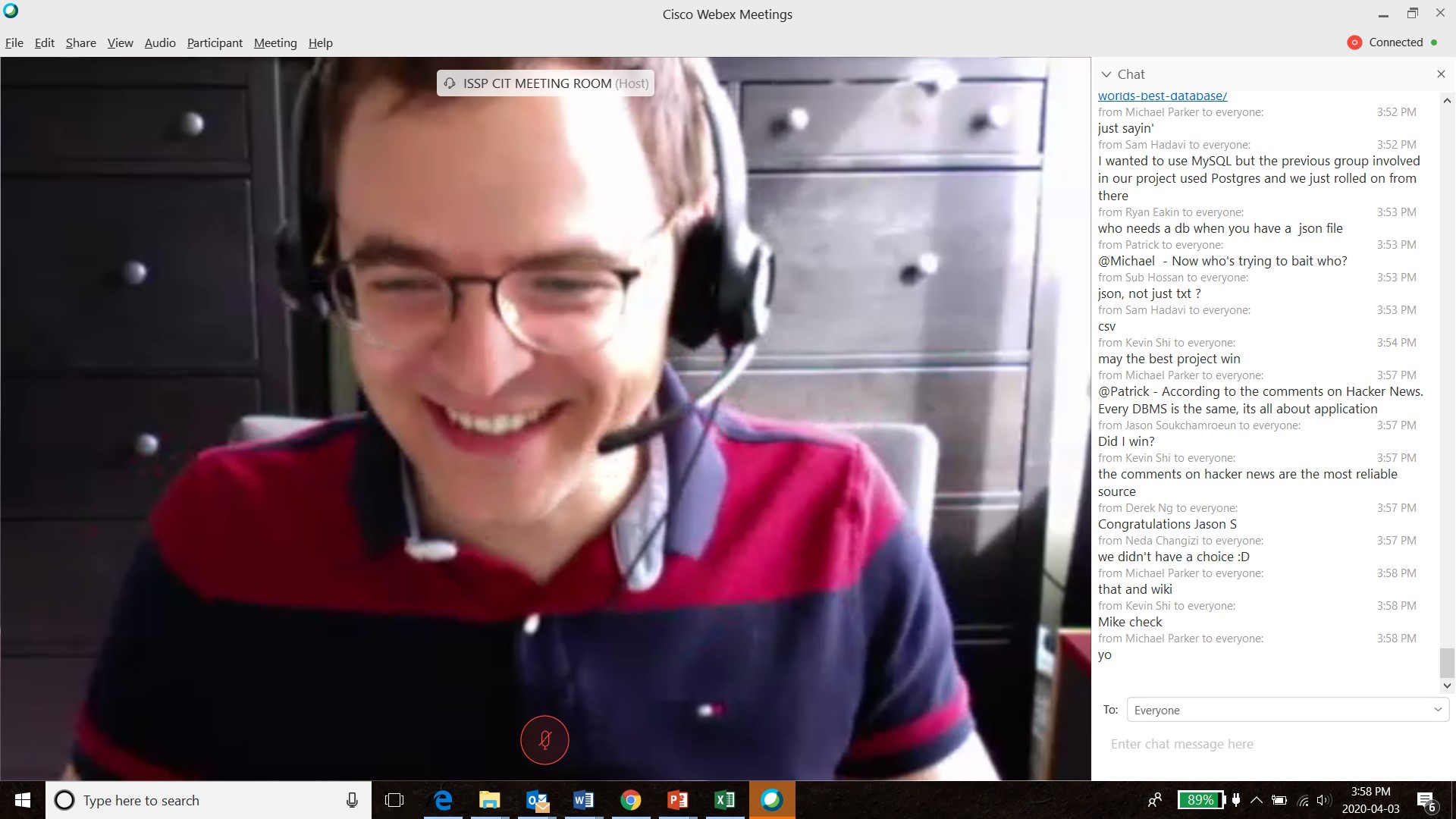Computer Information Technology (CIT) Diploma program students presented their Industry Sponsored Student Projects (ISSP) on April 3. Instead of gathering in the Technology Education and Collaboration (TEC) Hub at the Downtown Campus though, students, instructors, and industry partners met online for the project showcase.
From improving Search and Rescue (SAR) technology, and implementing a deep learning algorithm to test the efficiency and speed of traffic generators to gamifying politics bridging the gap between politics and sports, and building web applications to display aggregated data from Internet-of-Things devices. It’s a small selection of the fifteen projects that were presented by the various student teams to their industry sponsors.
“It has been a great semester,” says a delighted Dr. Michal Aibin, CIT faculty, after the presentations. “I’ve been organizing ISSP for almost three years now and it never ceases to amaze me. Students take on these IT and software challenges and deliver professional solutions. After the presentations I told them all: you guys rock.”
Razor-thin victory for a mobile app
The concept of ISSP is simple: put BCIT Computing students to work on creating a viable or software solution for your business challenge. “The result is really a win-win situation,” says Michal. “Our students get an invaluable opportunity: work on real-world industry projects. An organization can bring any type of business idea or problem, and have these skilled and highly driven students work on it.”
Every student team got a round of artificial applause and kudos in the chat. But joint voting by instructors, students, and industry sponsors declared a razor-thin victory for the team that developed a mobile application to increase community engagement for ISACA Vancouver, an organisation that helps companies reach their IT potential thanks to improving security in their processes.
“It felt really good when we heard that we’d won,” says project leader Justin Tran. “You feel validated for all your hard work.”
Focus, polish and shine
Over fifteen weeks, the students sought to improve ISACA Vancouver’s engagement with its community members. After a day-long brainstorm, the students were inspired to develop an event app.
“ISACA Vancouver hosts a lot of events like conferences and mentorship programs, but they lack the platform to showcase them,” explains Justin. “With the mobile application we developed, you can not only see when and where the events take place, but also purchase tickets for them. We also added a feature that allows you to communicate with key ISACA Vancouver members.”
Justin continues to explain that the project’s limited scope played a big role in their success. “In my previous project, we had a pretty broad scope. As a consequence, we had a hard time figuring out which direction to go. This time we were able to focus, polish the product, and that made us shine.”
Online transition requires adjustment
Even though the group walks away with first place and a big “Thank you” from ISACA Vancouver, this didn’t mean that the project was immune to setbacks.
In particular, the transition to online collaboration due to the pandemic was, according to Tran, quite an adjustment. “For me it was pretty hard, because I really valued the face-to-face time in the classroom. A lot of progress came from working together in the same room. Conveying ideas and thoughts through just the use of your voice is kind of hard. And I found that managing people – getting everyone online at a certain time, and on the same page – proved to be difficult.”
Our main goal is to continue to offer quality applied education to our students
Although CIT instructor Michal Aibin certainly sees the limitations of working online, he is nevertheless very impressed with his students’ work. “Of course, nothing can fully replace traditional face-to-face class time, but the pandemic has turned everything we know upside down. I think we’re doing well making the best out of the situation.”
“I’ve been relieved seeing the successes we’ve had in adapting our courses in such a short time to an online environment,” he explains. “Our main goal is to continue to offer quality applied education to our students, and to help industry fill its growing need for tech talent, in whatever format the current situation allows.”
The next ISSP series takes place in September. Are you interested in collaborating with us? Please visit our project site and submit your proposal.

Looking good Michal!